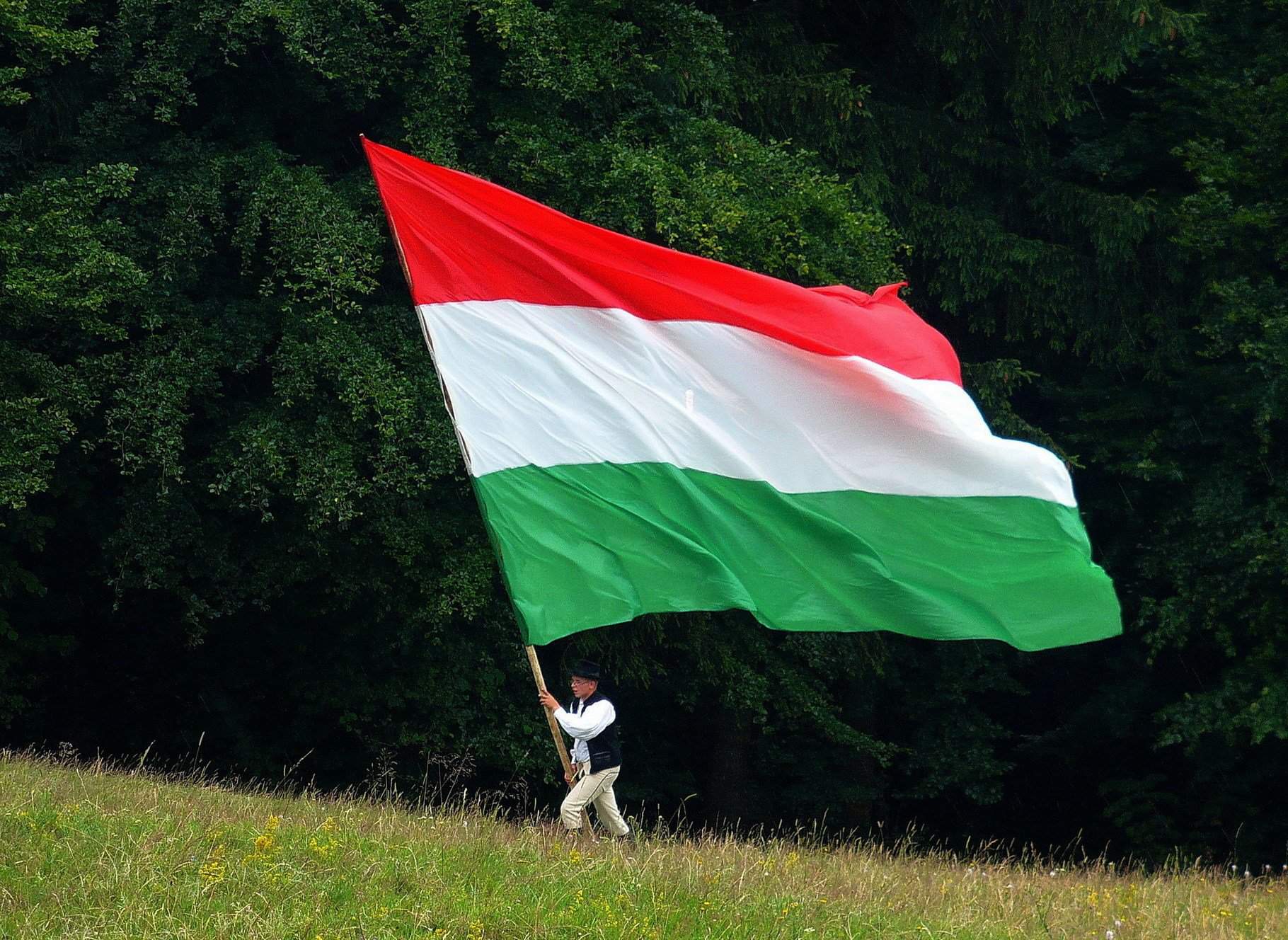It’s official: Hungarian is one of the most difficult languages in the world

As qubit.hu reports, American government’s Foreign Service Insitute (FSI) divides languages into five groups based on difficulty. The classification is not based on scientific, but pragmatic aspects. The institute which is responsible for the language training of American diplomats delegated to foreign countries, simply takes into consideration the time it takes the American learners to acquire a new language.
In this list Hungarian was put in the category IV*, meaning that according to English (American) native speakers, it is a foreign language of almost nuclear difficulty. As FSI reports, one must study Hungarian for one year, putting everything else aside in order to acquire the language (it is not clear how these categories relate to language certificate levels).
In Category I, that is, the languages easiest to acquire for Americans are, mainly North Germanic (Scandinavian) languages, such as Danish, Norwegian or Swedish, and Romance languages, such as French, Italian, Spanish or Portuguese.
According to FSI, an American learner of English mother tongue can acquire these languages within about half a year, with 23-24 weeks, 575-600 class hours. These languages are also members of the Indo-European language family, like English, which may make them easier to learn.
Only the German language was put in Category II, with its 30 week and 750 hours of learning time. In Category III there are the Indonesian, Malaysian and Swahili languages, with 36 weeks (900 hours) of learning time.
Category 4 has the most languages: 42 languages are listed here by FSI altogether, such as Albanian, Turkish, or Zulu. One needs to study these for 44 weeks and net 1100 class hours. Slavic languages belong here too, for example, Russian, Serbian, Slovakian, Slovenian, or exotic languages, like Armenian.
Within Category IV, a few languages were marked with a star, which took Americans more than a year to acquire.
These six languages are Estonian, Finnish, Georgian, Mongolian, Vietnamese, and Hungarian.
In Category V, the hardest ranking one, there are only five languages: Arabic, Cantonese, Mandarin, Japanese, Korean. An American person needs to learn these for almost two years (88 weeks, 2200 class hours).
Photo: erdely.ma
Source: qubit.hu


We are talking about Americans though….
Helgám!
Hazám határait hátrahagyva, három hétig Hegel, Heine honában,Hannoverben, Hamburgban helyettesítettem hivatalos honoráriumért HansHerbertet.Hetedikén hétfőn hárman Hédivel, Hugóval (holland házaspár) Hágából,Helsinkibe hajóztunk.
Hédi horgolt, hímzett.Hugó heverészett, hálóhelyére húzódott, hogy Horatiusnak hódoljon.
Hajósaink hevenyészett hálóval, horoggal hitvány heringet halásztak.Hajónkat hamarosan hömpölygő hullámok háborították, halászcsónakkénthimbálták, hányták Herkulesünket.Helsinki hídjai, hétemeletes házai, hatalmas hengerműve, hőerőművei hatásosak.
Harisnyagyárai, húsüzemei hetedhét határban híresek.
Huszonharmadikán hangversenyen Händel, Haydn, Hubai hegedűversenyét hallgattuk.
Hébe-hóba hülyéskedtünk, hotelünk halljában huncutkodtunk, hatásoshistóriákkal hárijánoskodtunk.
Havazik Helsinkiben. Hó hull háztetőkre, hídakra, halpiacokra.
Hódprémet, hócipőt, halinacsizmát hordanak.
Hómunkásaik helytállását három havilap hírdeti.
Hanoiból háborús híreket hoznak, heves harcokról, holnapi hidrogénbombákról.Harctereken háborútól, himlőtől, hastifusztól, hepatitisztől hullanakhajszolt halandók.
Hőmérőnk higanyszála hajnalban húszig húzódik.
Háromnegyed hétkor hosszan hangzik Helsinki harangszava.
Hiva, huomenta! (jó reggelt)
Hallani helyenként.
Hotelünk hangulatos, hanem hálószobáink huzatosak, hidegek.Helyiségeiben hintaszékek, heverők háziszőttesekkel.
Heveny hörgő huruthoz hamar hozzájutottam, hevertem huzamosan.Hotelbéli hálótársaink hűvösek hozzánk. Hugó hajnali háromkor horkol,helytelenkedik, hangulatunk haragosra hanyatlik.
Hideg hétköznapokon, ha hétkor holdfénynél hólabdázunk, hokizunk,helsinkiek helyeslő huj huj hajrájat hallgatjuk.
Hétvégi hóbortunk hógolyózás.
Hokizás helyett hol huszonegyezéssel, hol hubertusz hörpintgetésévelhevülünk, hűségünket holtig halasszuk.
Hédi Helsinki hölgyekkel hímző hobbijának hódol.
Holnapra helikopterrel Hamenlinába hívnak Hejkéék.
Harmincezres helység, hazai Hatvanunkhoz hasonlít.
Hadtörténész haveromnál, Hejkééknél hálok.
Hiába hagytalak Helgám Hegyeshalomnál, harmatarcod, hattyúnyakad,hollóhajad, hazaszólít Hejkéék honából. Hazahív Hungária!
Hosszú hontalanságomból húsvétra hazaérkezem hozzátok Hevesbe.Hermelinbunda hízelegne hiúságodnak, ha hozzáférhető?Hajnalkának helyes hósapkát, Hubának hullámvasutat helyeztemhátizsákomba, Hugónak homokozójátékot, horgászfelszerelést hozok.
Hármótok híján honvágyam hétről-hétre hatalmasodik.
Hiszem, hogy húsvétkor hiánytalanul helyreáll harmonikus házasságunk,
Hevesben, házunkban húsvétolhatunk.
Helsinkiben halak havának huszonhetedikén,
Hű Henriked!
Na, ezt próbálják meg utánozni más nyelven!
The comment we are talking about Americans, extremely unmature and stupid.
I agree and i dont with the “Talking about americans” comment being unmature and stupid. We see all the videos on the internet, american people being asked geography questions or other subjects and they cant give the correct answer. But what non of these videos show, how many people they actually asked to get the result what they got and be able to put a 5-10mins video together. In this sense it was unmatured and rude. If we did the same market research in Hungary, im pretty sure, we could make several videos too. However, just like in the UK, the language education isnt the part of the school on such a high level than for example in hungary. In this sence, yes, we are talking about americans, but not in the meaning of they being stupid, rather just the ability to learn new languages.
I think the article is just pointing out the level of difficulty of different languages for people whose first language is English, not particularly Americans, I do think the comment “we are talking about Americans though…” rather uncalled for.